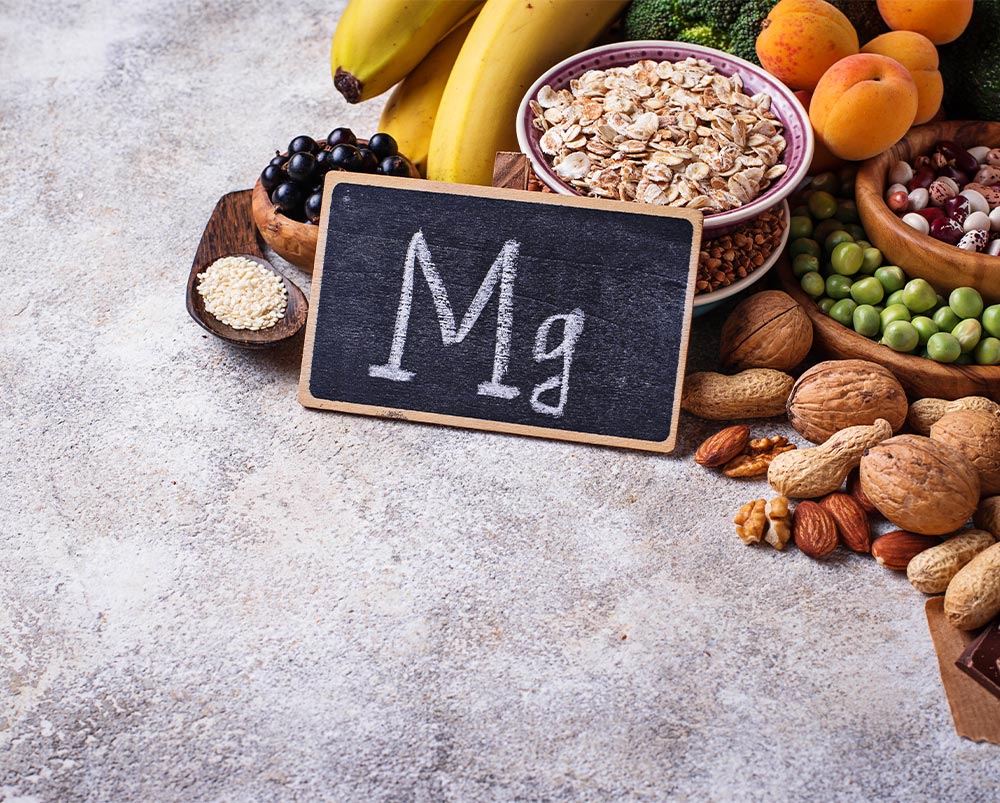Have you ever found yourself craving a certain food or drink, even when you know it's not the healthiest choice? Well, you're not alone. So, what is a Craving? Cravings are a natural part of being human, but understanding them can help you make better choices for your overall health and wellbeing. In this blog post, we'll be diving deep into the science behind cravings and exploring common food cravings and what they might mean. We'll also be discussing why we crave certain foods, how to cope with cravings, and the impact of cravings on our health. So, if you want to take control of your cravings and improve your relationship with food, keep reading!
Crave meaning
Recognizing what is a craving and hunger pangs from cravings is crucial for balanced eating. Cravings stem from factors like hormonal changes, stress, or lack of sleep, often signalling nutritional deficiencies. Self-awareness and mindfulness are vital in addressing these desires with healthier alternatives. Understanding our body's signals can help manage temptations for junk food or sweets next time.
The Science Behind What Is a Craving?
The brain's response to cravings can be traced back to the reward system, involving neurotransmitters like dopamine. Environmental cues and past food experiences also play a role in shaping our cravings. Additionally, research indicates that cravings for specific foods may be linked to nutritional deficiencies or hormonal imbalances. Understanding the impact of serotonin, dopamine, and other neurotransmitters is crucial in decoding the science behind cravings.

The Role of Hormones in Cravings
The influence of hormones, such as leptin, ghrelin, and insulin, on appetite and cravings is significant. Hormonal fluctuations during the menstrual cycle or menopause can impact food cravings. Imbalances in hormone levels can lead to intense cravings for specific foods, particularly sweet or salty items. Cravings could be the body's way of seeking comfort or an energy boost due to hormonal changes. Understanding the role of hormones in cravings is vital for maintaining a balanced and healthy diet.
Common Food Cravings and What They Mean
Craving cookies and craving Chocolate or other sweets can be linked to a lack of enough sleep, as the body seeks glucose for energy. A yearning for Cheese and Dairy Products may indicate a need for calcium or fat, while a desire for Salty Snacks might signal dehydration or mineral deficiencies. Craving Caffeine could be due to fatigue or thirst. Understanding Why We Crave Certain Foods involves recognizing the body's signals and addressing them appropriately.
What is a Craving for Sweets and Chocolate
Serious cravings like craving ice cream might indicate a serotonin imbalance, stress, or sleep deprivation. It could be the body's way of seeking a quick energy boost or comforting foods. Emotional triggers like stress and anxiety can intensify the desire for sugary items. Understanding the connection between sweet cravings, dopamine, and emotional well-being is crucial. Managing sugar cravings involves making mindful food choices and effectively handling stress levels.

Craving Cheese and Dairy Products
When craving cheese and dairy products, it could be linked to calcium deficiencies or hormonal changes. The body's desire for cheese might signal nutritional needs, particularly related to calcium and vitamin D. Emotional factors, such as comfort or reward, can also contribute to these cravings. It's essential to understand the nutritional benefits and potential deficiencies associated with these cravings. Managing them involves incorporating a balanced intake of calcium-rich foods into the diet.
Craving Salty Snacks
Feeling the urge for salty snacks like potato chips? It could be linked to electrolyte imbalances, stress hormones, or dehydration. Emotional factors may also play a role, making it vital to understand the impact on overall health and hydration levels. Addressing these cravings involves choosing healthier options and managing stress effectively. Next time you feel the temptation for a bag of potato chips, consider alternatives with less salt and take steps to manage stress.
Craving Caffeine
Craving Caffeine: Intense yearning for caffeine, found in soda or coffee, could signal low energy, lack of sleep, or addiction. The body's desire for caffeine may result from fatigue, stress, or dehydration. Emotional factors like habit or reward also play a role. Understanding the link between caffeine cravings, dopamine, and energy levels is crucial. Managing these cravings involves exploring healthier beverage options and improving sleep habits.

Why We Crave Certain Foods
Emotional triggers for cravings, influenced by stress, sadness, or happiness, shape specific food cravings. Recognizing the need for comfort or distraction aids in understanding emotional triggers for cravings. Coping mechanisms for emotional stress can lead to cravings for specific foods. Identifying emotional connections to cravings is vital for mindful eating and overall well-being. Effective management involves developing healthy coping strategies and addressing emotional needs.
Emotional Triggers for Cravings
Understanding the emotional triggers for cravings reveals the psychological aspects of food desires. Emotional states like stress, sadness, and happiness influence specific food cravings, serving as coping mechanisms for emotional relief. Recognizing these emotional connections is crucial for mindful eating and overall well-being. Managing emotional triggers involves developing healthy coping strategies and addressing emotional needs effectively, leading to a balanced approach to food consumption and emotional wellness.
Physical Causes of Cravings
Intense cravings are often linked to chronic stress and hormonal changes, such as during menopause. Nutritional deficiencies, lack of sleep, and imbalances in serotonin, dopamine, and leptin can also trigger cravings. Psychological factors, like stress and the reward system, drive intense cravings, while imbalances in hormones like progesterone and glucose can contribute to cravings related to PMS. Understanding these physical causes of cravings is essential for managing them effectively.

How to Cope with Cravings
Coping with cravings involves distraction, mindfulness, and engaging in activities when they arise. Identifying triggers, planning healthy snacks, and keeping unhealthy foods out of sight can also help. Addressing stress, ensuring enough sleep, and managing nutritional deficiencies is crucial for reducing intense cravings. Positive self-talk and reminding oneself of health goals during cravings can provide much-needed support. Seeking help and developing a balanced eating pattern are key coping strategies.
Healthy Alternatives for Sweets and Chocolate
When sweet cravings strike, try satisfying them with healthier options. Dark chocolate, fruit, and yoghurt not only curb cravings but also come with added health benefits. Opt for cocoa beverages, nuts, or antioxidants instead of sugary foodsto indulge in a guilt-free manner.You can also choose nonfood items like herbal tea or scented candles to distract yourself from cravings.Incorporating calcium-rich foods, whole grains, and tofu into your diet can effectively curb sugar cravings. Remember, indulging in small portions of sweet foods can satisfy cravings without overindulging.
Tips to Curb Salty Snack Cravings
When salt cravings strike, opt for healthier alternatives like popcorn, crackers, or whole grains. Try roasted chickpeas, edamame, or a small serving of cheese for a savoury fix. Season foods with herbs, spices, or lemon juice to reduce the desire for salty snacks. Stay hydrated, balance sodium intake, and address nutritional deficiencies. Engage in physical activities, practice mindful eating, and distract yourself with hobbies to curb cravings.

Strategies to Deal with Caffeine Cravings
Dealing with caffeine cravings can be effectively managed by gradually reducing caffeine intake and switching to herbal teas or decaf beverages. Managing energy levels, establishing a sleep routine, and addressing stress can also help in reducing caffeine cravings. Substituting caffeine with energy-boosting foods like porridge, nuts, or whole grains is a great strategy. Staying hydrated, engaging in physical activities, and maintaining a balanced diet are also effective ways to manage caffeine cravings. Additionally, practising mindfulness, deep breathing, and seeking professional advice can provide further support.
The Impact of Cravings on Health
Uncontrolled cravings may lead to weight gain and potential health risks, contributing to an imbalance in food intake and nutrient deficiencies. Chronic stress, intense cravings, and hormonal changes can also impact overall mental health. Understanding the impact of cravings on health enables better food choices and habits, requiring the addressing of emotions, stress, and sleep patterns. Managing unhealthy cravings is essential for overall well-being.
Cravings and Weight Gain
Frequent cravings for sugary foods, fast food, or potato chips can lead to weight gain. Understanding food cravings, appetite, and hormonal changes helps manage weight gain. Managing cravings, portion control, and balanced eating are crucial for weight management. Monitoring sugar intake, managing stress, and getting enough sleep can prevent cravings and weight gain. Educating oneself about food cravings, energy balance, and food intake is essential for weight management.

Cravings and Mental Health
Managing cravings, stress, and food choices positively impact mental health and well-being. Identifying emotional triggers, managing stress, and seeking support can improve mental health. Developing coping strategies, addressing cravings, and practising self-care benefit mental health. Understanding the connection between cravings, serotonin, dopamine, and mental health is essential. Balancing cravings, comfort foods, and emotional eating can contribute to improved mental health.
Can Cravings Be Completely Eliminated?
Managing cravings is achievable, but completely eliminating them may not be realistic. Differentiating hunger pangs from cravings is important. Replacing unhealthy cravings with nutritious options and addressing triggers can help. Understanding factors influencing cravings aids in managing and reducing them. Striving to reduce frequency and intensity contributes to overall health.
Are Some Cravings Good for You?
Cravings can actually be beneficial as they may indicate nutritional deficiencies and signal the body's needs. Embracing cravings for whole foods like fruits, vegetables, and nuts can be advantageous. By understanding the reasons behind cravings and making balanced choices, we can meet our body's requirements and promote overall health.
Conclusion
In conclusion, understanding and addressing cravings is an essential aspect of maintaining a healthy lifestyle. Cravings can be influenced by various factors, including hormones, emotions, and physical causes. By identifying the triggers and understanding the underlying reasons behind our cravings, we can make healthier choices and find suitable alternatives to satisfy our cravings. It's important to remember that occasional indulgences are normal and can be enjoyed in moderation. However, if cravings become excessive or start to negatively impact our health, it may be necessary to seek professional help. By taking control of our cravings and making conscious choices, we can maintain a balanced and nourishing diet, promoting overall well-being.
References:
Understanding the biology of appetite and cravings
Managing cravings and hunger pangs
Eating well as you get older: Nutrition and aging
Food cravings: How to stop them for good
Stress, cortisol, and other appetite-related hormones
Food Craving as a Mediator between Addictive-like Eating and Problematic Eating Outcomes
Associations of Sleep with Food Cravings, Diet, and Obesity in Adolescence





Leave a comment (all fields required)